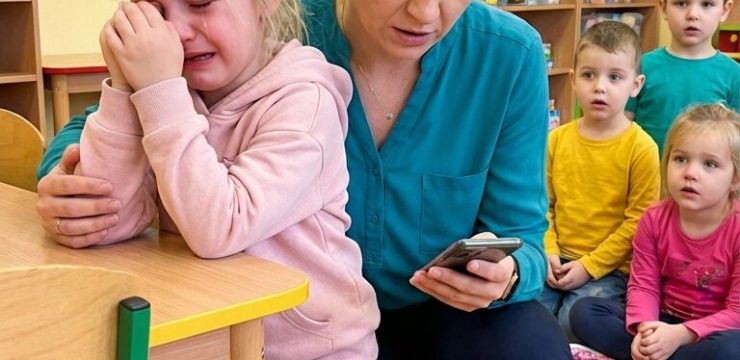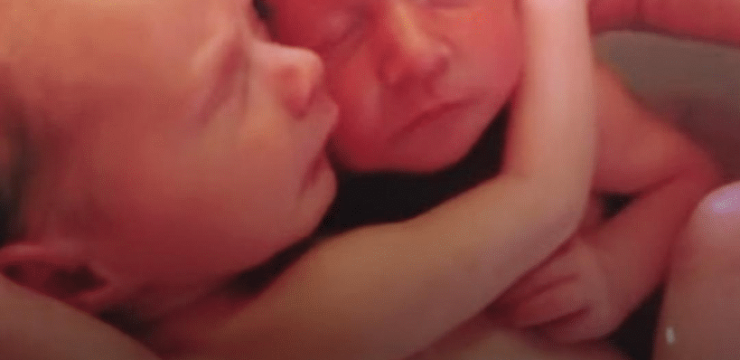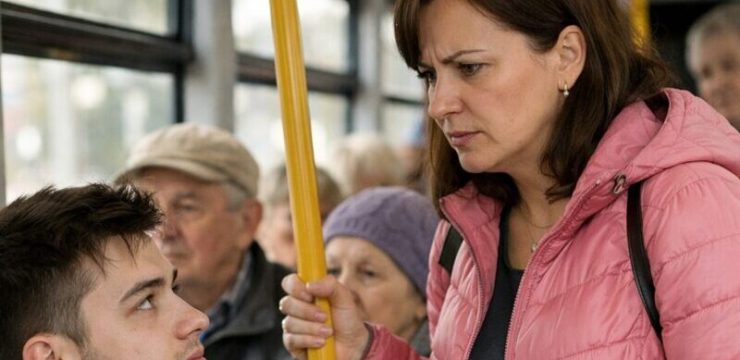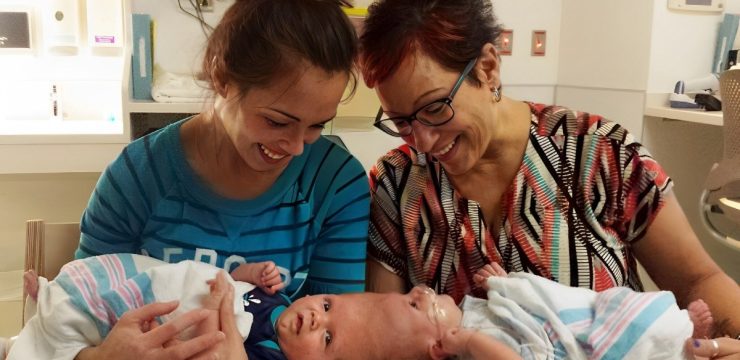The first contraction didn’t creep in quietly — it arrived with a sharp, undeniable force that folded me over the kitchen counter. One minute I was slicing fruit absentmindedly, and the next, a wave of pain surged through my body so intensely that it stole my breath. I held onto the counter with one hand while my other instinctively wrapped around my belly, as if I could shield my baby from what was coming. For a moment, I stayed perfectly still, trying to figure out whether this was a false alarm or the beginning of something real. But then another contraction rolled through me, stronger and deeper. It was unmistakable. My body had begun the journey I both longed for and feared.
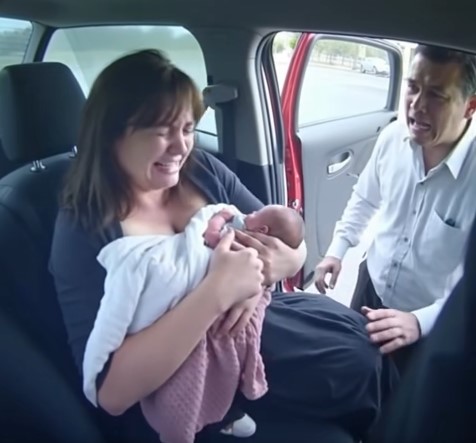
I looked toward the living room, where my parents sat as if nothing in the world had shifted. My mother scrolled through her tablet, expression blank, while my father watched television with the distant glow of the screen reflecting off his glasses. I hoped they would notice the tremor in my hands or the fear tightening my voice.
“Mom,” I said softly, trying not to panic. “Dad… I think I’m in labor.”
The words felt heavy, urgent, and emotional — but they slipped right past them without landing anywhere.
My mother didn’t even turn her head. “Just relax,” she said flatly. “You always get worked up over nothing.” Her dismissiveness struck me harder than the contraction. Relax? My body was contracting with the force of something ancient and instinctive, yet she spoke as if I’d complained about a mild ache.
My father barely shifted. “Just sit for a bit. It’ll probably pass.”
Another contraction seized me, faster and more powerful than the last. My knees buckled slightly, and I grabbed the chair behind me, pressing my forehead to the cool surface of the cabinet door. The pain felt like someone tightening a belt around my core again and again.
“I need to go to the hospital,” I said louder this time, my voice cracking under the pressure. “It’s happening. I need to leave now.”
Still, neither of them moved.
My mother exhaled dramatically. “We’re busy. Someone else can take you.”
Busy.
That single word echoed inside me like a hollow drum. They were busy while I was about to bring a new life into the world. In their eyes, my fear, my pain, and my urgent need didn’t even register.
Another contraction ripped through me and pushed tears to my eyes. I realized then that no one was coming to help me. Not the people who were supposed to care. Not the ones I depended on. I felt something inside me collapse — not physically, but emotionally — a quiet breaking that came from realizing I was truly alone at a moment when I should have been supported.
With trembling fingers, I reached for my phone. I shouldn’t have had to call a stranger. I shouldn’t have had to beg for help. But I had no other option. I opened the Uber app, blinking through tears while desperation pressed down on my chest. My heart felt painfully heavy from more than labor — it was the weight of disappointment, the loss of trust, the sadness of realizing my parents chose convenience over compassion.
The house felt suffocating. I needed to leave before the walls closed in on me completely. I walked slowly toward the front door, pausing briefly to look back. A small part of me was still hoping one of them would glance up, recognize the fear on my face, and stop me. But their eyes never left their screens.
Stepping outside felt like emerging into another world. The cool air touched my overheated skin, grounding me in a way I didn’t know I needed. I closed my eyes briefly and took a deep breath, letting the night air settle my racing heart.
Headlights appeared at the end of the driveway, slowly illuminating the darkness. The Uber driver arrived in a quiet silver sedan. When the window rolled down, I saw a woman in her late forties or early fifties. The moment her eyes met mine, her expression shifted instantly.
“Oh honey… you’re in labor, aren’t you?” she asked, her voice full of genuine concern.
I nodded, unable to speak through the tightness in my throat.
She didn’t hesitate. She parked, stepped out of the car, and gently opened the back door. “Let me help you,” she said softly. “We’re getting you to the hospital.”
Her kindness washed over me like warmth after a long, bitter cold. It took everything in me not to burst into tears again. As I eased into the back seat, another contraction hit me with full force. I gripped the door frame and whimpered. She placed a stabilizing hand on my shoulder.
“You’re doing great,” she whispered calmly. “Just breathe. You’re not alone.”
Not alone.
Those words wrapped around my heart more tightly than any blanket. I didn’t realize how deeply I needed to hear them until that moment.
She got into the driver’s seat, checking the mirrors with steady hands. “My name is Julia,” she said gently. “We’ll go straight to the hospital. I’ll make sure you get there safely.”
As the car pulled away, leaving behind the house where no one cared enough to stand by me, I felt something inside me shift. A soft acceptance, a painful clarity, and a surprising sense of relief.
Outside the windows, streetlights blurred into glowing streaks as contraction after contraction tightened around me. I clung to the headrest and tried to focus on Julia’s voice as she spoke gently, sharing memories of her own experience with childbirth.
“You’re stronger than you think,” she said. “And you’re doing beautifully. I’m right here.”
Her words became an anchor in the midst of the storm inside my body. With every contraction, she reminded me to breathe, to stay grounded, to remember that I wasn’t alone — not anymore.
When we arrived at the hospital, she hurried to help me out. Another contraction buckled my knees, but she caught my arms with steady hands.
“I’ve got you,” she whispered. “You’re safe now.”
A nurse ran toward us with a wheelchair, and the bright lights of the hospital flooded my vision. Everything became a blur of questions and movement, but Julia stayed with me until the staff took me through the maternity ward doors.
“You’re going to be amazing,” she told me one last time. “You’re stronger than you know.”
Tears streamed down my cheeks — not because of the pain, but because this woman, a stranger, treated me with more compassion than my own parents.
“Thank you,” I whispered. “For everything.”
She smiled softly. “Take care of yourself. And that little one too.”
As the doors closed behind me, I realized something profound: sometimes compassion comes from the people you least expect. Sometimes strangers see you more clearly than the people who raised you. And sometimes, in your most vulnerable moment, kindness arrives in the form of someone who chooses to care simply because it’s the right thing to do.
Julia didn’t just drive me to the hospital.
She gave me comfort.
She gave me strength.
She gave me hope.
She reminded me that even when your family fails you, the world still holds people whose hearts are full of generosity and genuine care.

